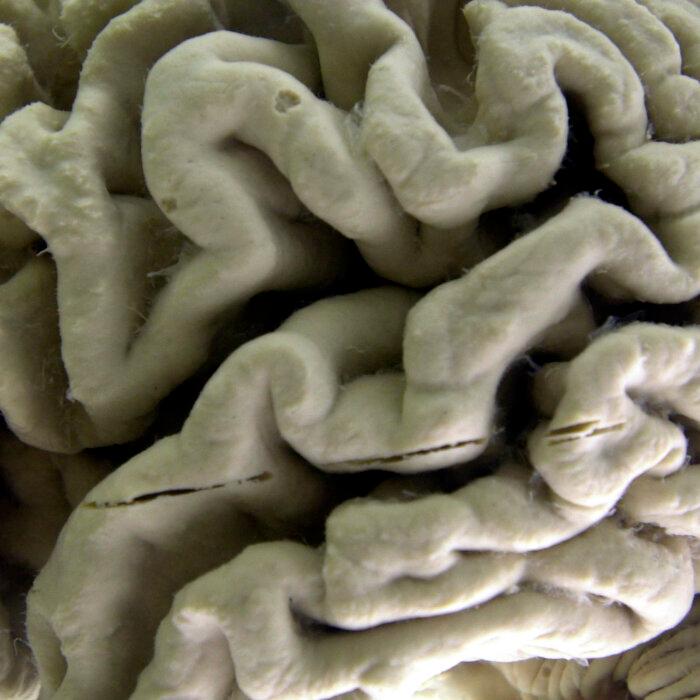Dementia remained the leading cause of death in the UK in 2023, according to new analysis, accounting for more than one in 10 deaths nationwide and increasing 1.5 percent from the previous year.
Alzheimer’s Research UK used data from the Office for National Statistics (ONS) for England and Wales, the National Records of Scotland, and the Northern Ireland Statistics and Research Agency, revealing that 75,393 people died from dementia in 2023, compared with 74,261 in the previous 12 months and 69,178 in 2021.
It added that the upcoming Ten-Year Health Plan for the NHS should be used to “future-proof” dementia care so the condition “doesn’t remain a death sentence.”
The charity’s Chief Executive Hilary Evans-Newton said in a statement: “This data reveals the tragic reality of dementia’s devastating impact across the UK.
Overtook Heart Disease
The latest figures come almost a decade since dementia overtook heart disease as the UK’s biggest killer, a position it has held apart from in 2020 and 2021 when deaths attributed to being from or “with” COVID-19 took over.An estimated 944,000 people in the UK currently have a diagnosis of dementia, with the charity predicting this figure could rise to 1.4 million by 2040.
Evans-Newton added: “By 2040, over 1.4 million people are expected to be living with dementia in the UK, with heartbreaking consequences for countless families and placing ever-increasing pressure on public services and the economy.
“Dementia already accounts for a quarter of hospital beds for people over 65, and the cost of dementia to the NHS has doubled in the last decade mainly due to often avoidable emergency admissions.
“The magnitude of damage caused by dementia on people and wider society can’t be ignored by government.”
More Women Than Men
The figures show that significantly more females than males are killed by dementia than men, with 48,000 women dying with the condition last year compared with 27,000 men.The analysis also found that, of the four nations, Northern Ireland had the highest dementia death rate at 11.7 percent, followed by by England (11.6 percent), Wales (10.6 percent), and Scotland (10.2 percent).
Evans-Newton said: “The government’s Ten-Year Health Plan offers a crucial opportunity to harness groundbreaking research developments and address the growing impact of dementia on society.
“New treatments and diagnostics are making their way to the UK, and we are learning more and more about how we can protect our brain health and reduce our risk of developing dementia in the future.
Not Fully Understood
Alzheimer’s is a disease in the brain, whereas the term dementia refers to a collection of symptoms. Alzheimer’s disease causes cognitive decline, and is understood to be the most common reason why people get dementia, accounting for about 60–70 percent of cases.Alzheimer’s is thought to be caused by the abnormal build-up of two proteins known as amyloid and tau. Deposits of amyloid, called plaques, build up around brain cells, while deposits of tau form “tangles” within brain cells. It is not fully understood how these proteins are involved in the loss of brain cells, but research into this is ongoing.
Other common causes of dementia include vascular disease, which prevents blood from getting to the brain properly, and Lewy body disease, caused by abnormal deposits of a specific protein.
Care minister Stephen Kinnock, whose mother, the former MEP and Labour minister Glenys Kinnock, died last December after living with Alzheimer’s for six years, described the condition as “a cruel disease which has a terrible impact on so many families, including my own.”
He told the PA news agency, “This data reveals the profound toll dementia has on individuals and their loved ones in the UK.”
Kinnock said that through its forthcoming plan, the government “is committed to getting the NHS back on its feet and creating a society where every person with dementia receives high-quality, compassionate care from diagnosis through to the end of life.”
New Drugs ‘Too Costly’
The NHS watchdog responsible for cost-benefit analysis of treatments has so far refused to approve two new drugs which are claimed to slow the progression of Alzheimer’s by clearing the toxic build-up of the protein amyloid in the brain.Donanemab, made by Eli Lilly, was found in a clinical trial run by the manufacturer to delay the advancement of the disease by 35 percent, with scientists suggesting it could give patients a better quality of life and prevent them from needing care in a home for up to two years.
However, the trials for donanemab showed significant side effects, and while the exact cost to the NHS is unknown, the medication currently has a list price of around £25,000 per year in the United States.







